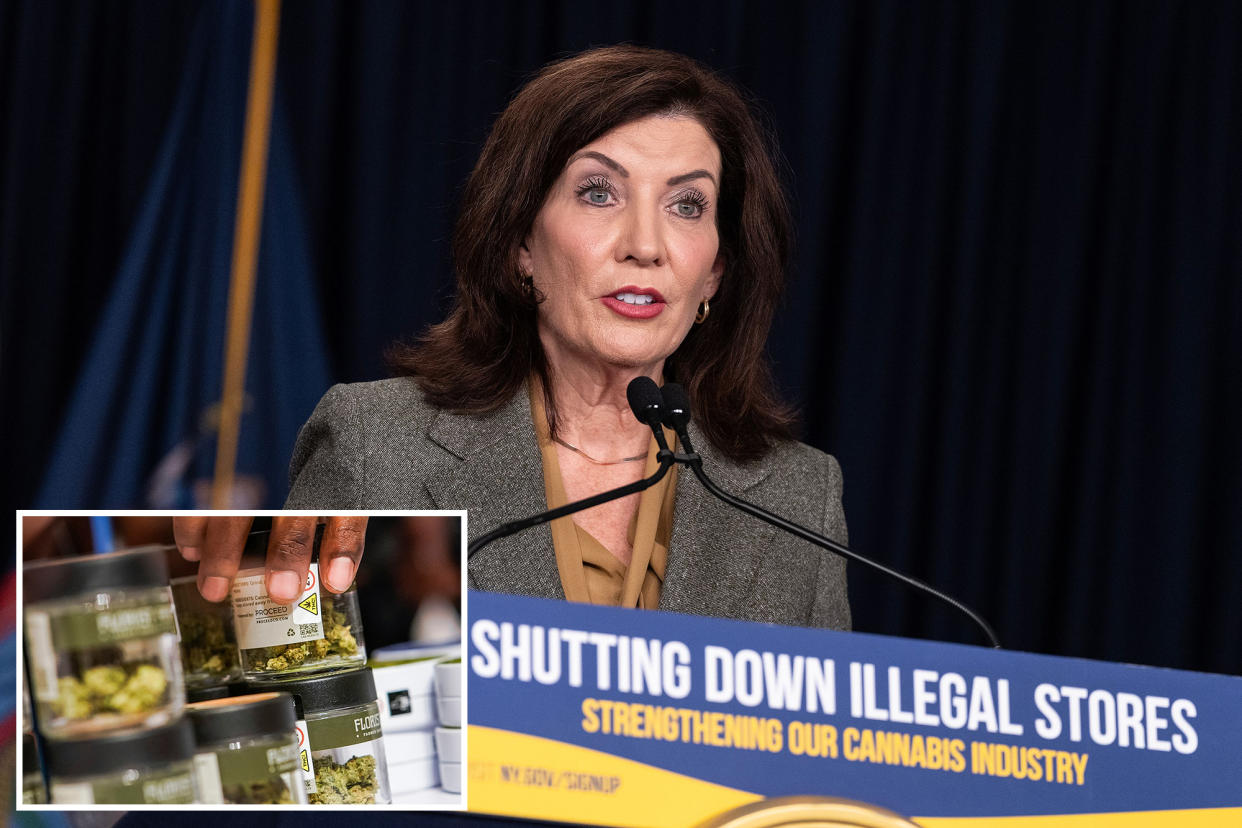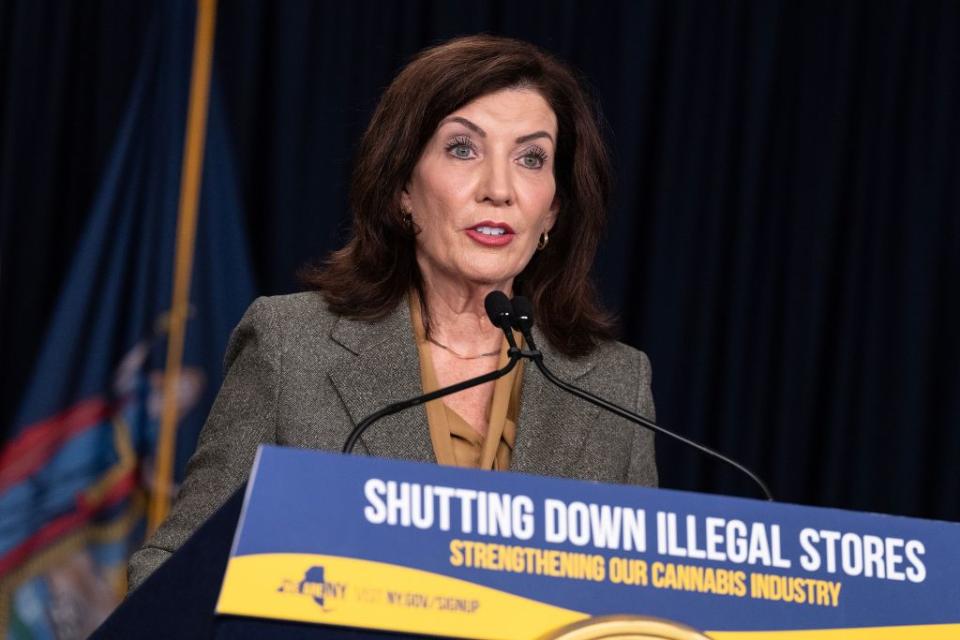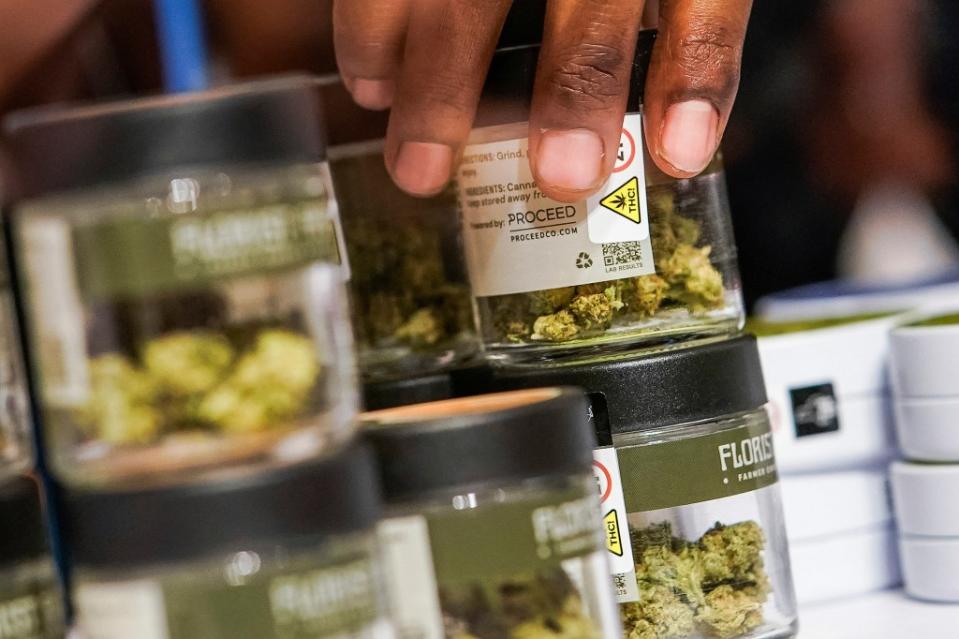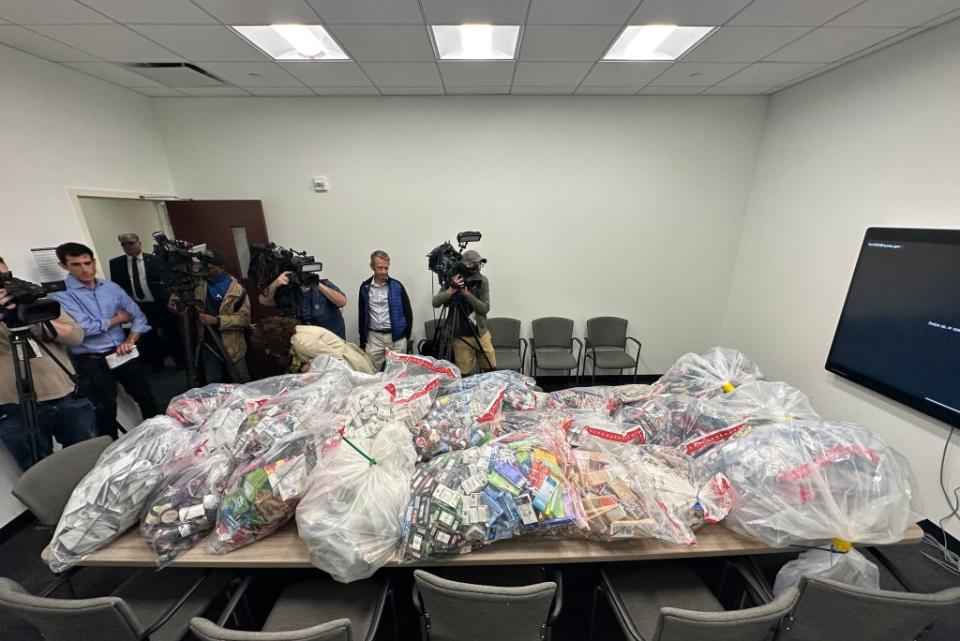State board approves 114 new licenses for New York’s embattled cannabis industry

- Oops!Something went wrong.Please try again later.
Gov. Kathy Hochul this week announced the approval of more than 100 new state licenses to sell pot — even as New York’s embattled cannabis program is in the midst of a complete overhaul, and illegal shops continue to thrive.
The state Cannabis Control Board on Friday approved 114 new licenses — more than doubling the number of stores that will legally be able to peddle marijuana products statewide to 223.
State officials did not immediately provide locations of the new shops when asked Saturday.


The city estimates up to 2,000 stores are illegally selling cannabis in the Big Apple.
There are currently 87 licensed operators to sell cannabis in the state, 38 of which are in New York City.
Last week, Hochul finally called for an overhaul of the state Office of Cannabis Management, which runs New York’s cannabis industry, after admitting its roll-out was a “disaster.’’
The move came as a key New York weed regulator was placed on leave after being accused of retaliation by a pot supplier for her criticism of the program.

Hochul tapped her Office of General Services Commissioner Jeanette Moy to conduct the 30-day examination of the program to try to streamline its licensing operation and the opening of new pot stores — a directive seen in and outside the weed industry as a belated attempt to stem a full-blown crisis occurring on the governor’s watch.
Of the new licenses, 45 are for retail dispensary and another 31 are going to applicants seeking to operate a “microbusiness license” that allows a licensee to grow, process, distribute and sell all under one license.
The board also waived license fees for marijuana farmers, which range from $4,500 to $40,000.

